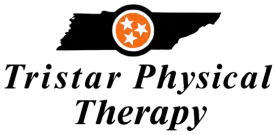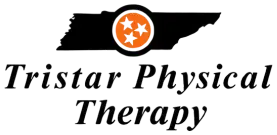Table of Contents
- Anatomy and Causes of Rotator Cuff Injuries
- Symptoms of Rotator Cuff Injuries
- Diagnosis and Treatment of Rotator Cuff Injuries
- Non-Surgical Treatments
- Surgical Treatments
- Occupational Therapy for Rotator Cuff Injuries
- Pain Management and Education
- Strengthening and Range of Motion Exercises
- Assistive and Adaptive Devices
- Home Exercise Programs
- Conclusion
Rotator Cuff Occupational Therapy: An Overview
The rotator cuff muscles and tendons are vital for shoulder movement and stability. When injured, these muscles can significantly impact a person’s ability to complete daily activities. Rotator cuff occupational therapy is a common treatment option to improve shoulder function and alleviate pain. This article provides an overview of rotator cuff injuries and the role occupational therapy plays in treatment.
Anatomy and Causes of Rotator Cuff Injuries
The rotator cuff is a group of four muscles and tendons that connect the shoulder blade to the upper arm bone. These muscles work together to lift and rotate the arm and stabilize the shoulder joint. Rotator cuff injuries can be caused by overuse, degeneration, or acute trauma. Common causes include:
- Repetitive overhead movements, such as in sports or certain occupations
- Aging and degeneration of the tendons
- Trauma from falls, accidents, or sudden forceful movements.
Symptoms of Rotator Cuff Injuries
Some common symptoms of rotator cuff injuries include:
- Pain in the shoulder or down the arm
- Weakness or limited mobility in the shoulder
- Difficulty lifting or reaching overhead
- Pain when sleeping on the affected shoulder
- Cracking or popping sounds with movement
Diagnosis and Treatment of Rotator Cuff Injuries
A doctor or occupational therapist will perform an evaluation to determine the extent and cause of the injury. In some cases, imaging tests such as X-rays or MRIs may be necessary to fully diagnose the injury. Treatment options for rotator cuff injuries usually depend on the severity of the injury and the individual’s goals for recovery.
Non-Surgical Treatments
Many individuals with rotator cuff injuries can benefit from non-surgical treatment options, such as:
- Rest and avoiding activities that aggravate the injury
- Physical therapy to strengthen and stretch the muscles
- Pain-relieving medications or creams
- Ice or heat therapy
- Corticosteroid injections to reduce inflammation and pain.
Surgical Treatments
In severe cases, surgery may be necessary to repair a rotator cuff injury. Surgical options include:
- Arthroscopic surgery: a minimally invasive surgery that uses small incisions and a camera to repair the injury
- Open surgery: a more extensive surgery that requires a larger incision and may be necessary for larger or more complex injuries
- Tendon transfer surgery: a surgery that transfers a healthy tendon from another part of the body to replace a damaged rotator cuff tendon.
Occupational Therapy for Rotator Cuff Injuries
Occupational therapy is a common treatment option for individuals with rotator cuff injuries. Occupational therapists work with individuals to improve shoulder function and alleviate pain to promote a healthy recovery. There are many ways occupational therapy can help individuals with rotator cuff injuries, including:
Pain Management and Education
Occupational therapists can provide pain management techniques and education on how to manage daily activities with a rotator cuff injury. They may recommend modifications to movements that cause pain and provide strategies for reducing discomfort during daily tasks.
Strengthening and Range of Motion Exercises
Occupational therapists will work with individuals to improve strength and range of motion in the shoulder. They will develop a personalized exercise program based on the individual’s goals for recovery and the extent of the injury.
Assistive and Adaptive Devices
In some cases, occupational therapists may recommend assistive or adaptive devices to improve shoulder function and reduce pain. These may include braces, slings, or assistive devices to help with daily tasks like dressing or reaching for objects.
Home Exercise Programs
After completing occupational therapy, individuals will receive a home exercise program to continue their recovery. This program may include exercises to maintain strength and range of motion in the shoulder to prevent future injuries.
Conclusion
Rotator cuff injuries can significantly impact daily activities and quality of life. Treatment options, such as occupational therapy, can help improve function and alleviate pain. If you are experiencing symptoms of a rotator cuff injury, talk to your doctor or occupational therapist to determine the best course of treatment for your individual needs.

